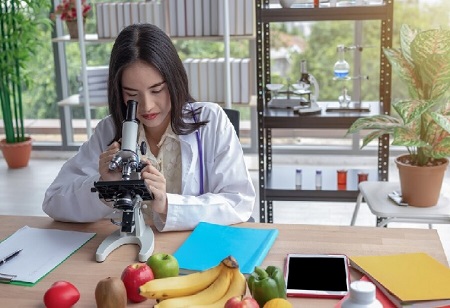Sixteen Project Lakbay fellows from Taiwan and the Philippines explore the educational, research, and innovation programs at the Southeast Asian Regional Center for Graduate Study and Research in Agriculture (Searca). The visit takes place at the Searca headquarters located at the University of the Philippines Los Baños. Dr. Eing Ming Wu, the managing adviser for ECSAA-Taiwan, UP Diliman National College of Public Administration and Governance visiting professor, and Searca senior fellow, guides the visitors alongside the staff from UP Open University and Edu-Connect Southeast Asia Association.
Project Lakbay, short for Learning Actively through Knowledge-Based Appreciation for Youth, is a joint initiative by UPOU Faculty of Management and Development Studies (FMDS) and ECSAA-Taiwan. This youth cultural and learning immersion camp aims to boost youth awareness and active engagement in global sustainability initiatives. Searca Director Glenn Gregorio, along with Dr. Maria Cristeta Cuaresma, Senior Program Head of Searca's Education and Collective Learning Department (ECLD), and Jerome Cayton Barradas, Project Coordinator in Searca's Research and Thought Leadership Department (RTLD), provided Project Lakbay fellows with briefings on Searca's mandate, its 11th Five-Year Plan, and core programs.
Cuaresma showcased ECLD's initiatives, highlighting projects and activities centered around graduate scholarships, institutional development aid, technical training, and learning events. She underscored the Southeast Asian University Consortium (UC) for Graduate Education in Agriculture and Natural Resources grants and activities. Wu expressed a strong interest in the UC and encouraged Searca to invite Taiwanese universities to participate.
On the flip side, Barradas discussed RTLD's endeavors, encompassing relevant research in agricultural and rural development, collaborations with pertinent organizations for on-the-ground interventions, and the implementation of support programs and knowledge platforms. He highlighted various RTLD projects, such as the School-Plus-Home Garden Project in Laguna and its extensions, including the Biodiversity Enhancement and Enterprise in Palawan and Cambodia, as well as the School Edible Landscaping for Entrepreneurship in Rizal. Additionally, he mentioned the Coconut and Calamansi Roadmapping project and the Consortium for Agricultural Development, Research, and Extension.

